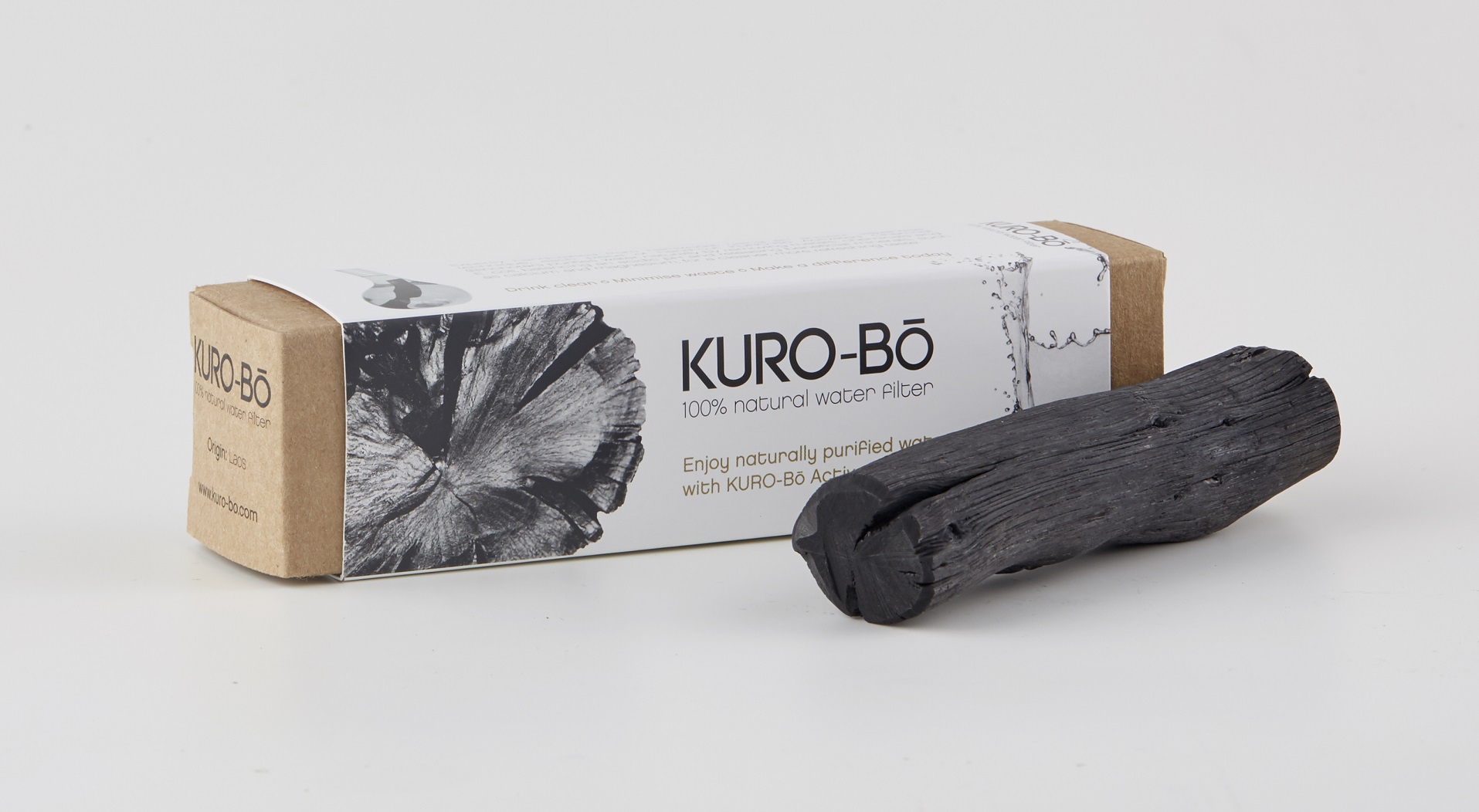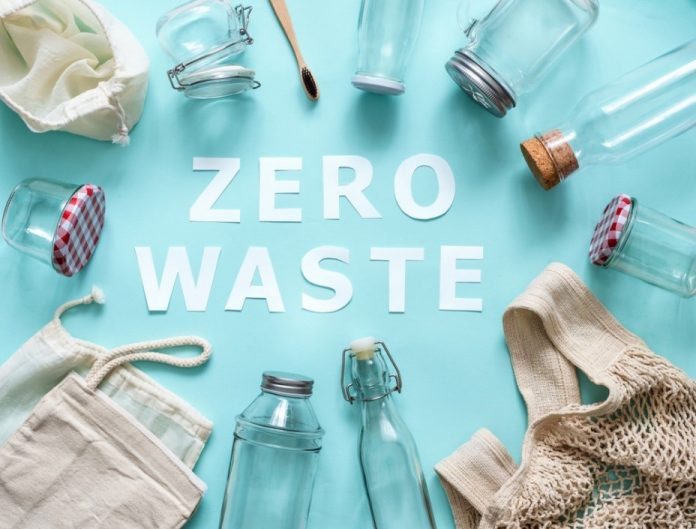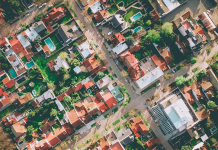Reduce. Reuse. Recyle. The new Three Rs. But how seriously do we really take this? And how can we encourage more people to instill these rules as a simple habit, rather than a chore?
We got some really useful, practical tips for zero waste that are easy to incorporate into our daily lives from Karen Heron, founder of Earth Probiotic, who says by thinking about waste before we generate it, we can collectively have a huge impact on the war on waste. She adds that being conscious of our environmental impact helps with the choices we make, and therefore the consequences of our actions. Easier said than done? Nope. Not if you start off with these basic tips…
Refuse (say ‘no’)
This sounds easy but often we’re bombarded with packaging we don’t want or can’t get away from. However, if we’re prepared, this is very much easier. For example, choosing loose fruit and veg which come almost package-free. Get yourself a mesh bag for this purpose and remember to take it with you when you head to the shops. Also, always keep a fabric bag in your car to hold your shopping, then refuse the plastic version offered at the store.
Reduce
Large bags of food produce seem like a bargain and often are … but only if all the contents are used. Otherwise, you’re throwing away good food and money because there was too much of it. Buy only what you need. A planned weekly menu is a great way to help you buy only the items required (and makes for a quick shop). This reduces impulse spending which is often wasteful, especially if produce is forgotten or goes bad before being used.
Reuse
Most food packaging containers can be used many times over. Use the large yoghurt tubs to freeze stock, home-made dog food and leftovers. Stick a piece of masking tape on the lid for easy labelling. They’re great for storing beads, buttons and for planting seedlings too.
Repurpose
Restyle clothes you no longer wear and update them to create new items. A baggy shirt that was once fashionable can be taken in to begin new life as a fitted shirt. Long skirts or dresses that were an awkward length can be shortened; jeans that mysteriously shrank in length, when lopped off at the hem will now be very fashionable with the ends unravelling. And the cut-off fabric? Use it to patch up dog cushions or old toys. A chipped salad bowl can be given drainage holes and become a useful pot plant holder and old wool or thick string can be knotted, macramé-style, into holding the pot plant.
Recycle
Much, but not all, the packaging we face today can be recycled into another life. Paper waste needs be kept clean (from food waste), food waste composted, then all the other dry waste (glass, cans and plastic, once cleaned,) can be added together. Recyclable waste is either picked out of your kerb side bins by informal waste collectors, or separated at a Waste Recycling Facility. Clothes and household items can be recycled easily through friends, family and even at the office as there’s always someone who can make use of these items. Hospice gladly takes almost anything and there are many centres and charities that collect these items, which are sold to raise funds.
Relax
You alone are not going to save the world (even though you want to!). But by your actions you’re changing the people around you. They see you and your passion and it’s hard not to want to be you, the queen of recycling. Share your knowledge, money-saving tips (recycling definitely saves cash) and stay brave in your convictions.
TAKING RECYCLING SERIOUSLY
Earth Probiotic was started by Karen and Gavin Heron in 2010 with the express purpose of diverting food waste from landfill. One hundred per cent of their products are sourced and manufactured in South Africa. All their products are made from either recycled or upcycled material. Their packaging is recyclable and they’re aiming to make it compostable in the near future. They believe diversity is key to thriving systems, whether they’re a business, a garden, a compost heap, a farm or even a small pond. Everything they sell in their store they use in their home. Earth Probiotic is officially Proudly South African and helps champion the recycling of all organics through different mechanisms in South Africa.
Details: earthprobiotic.compond.
AIMING FOR A ZERO WASTE LIFESTYLE
Sam and Dom Moleta, owners of one of SA’s first zero waste grocers, The Refillery, spent six years working in the yacht industry, and saw first-hand the impact plastic waste has on the oceans. Vowing to make a difference, they share their tips for a zero waste lifestyle.
First and foremost, be realistic. ‘As the inspiring Bea Johnson says, we may never reach the zero in Zero Waste but that doesn’t mean we shouldn’t try.’
Be a conscious consumer. By simply being aware that what you buy adds to the world’s consumerism problem, you can have a positive effect.
Ban single-use. Choose to reuse what you have, reinvent it, repurpose it, refill it and recycle it when it finally comes to the end of its life. Buy unpackaged fruit and veg. Only ever use reusable shopping bags.
Support small businesses that empower people and grow our economy.
Shop local. Or second-hand. Every single item we own has a carbon footprint. Reduce that by not adding shipping. It’s even better if it’s been used before and is now finding new life instead of going to a landfill. Mend things and donate or sell what you no longer use. You don’t have to search far to find charities looking for donations. Sell stuff on Facebook Marketplace, Gumtree or at Cash Crusaders and give someone the opportunity to buy second-hand. Donate old books and textbooks to a second-hand bookstore, the library or a local school.
Watch what you eat. The commercial food industry is not environmentally friendly so go Flexitarian. Take part in Meat-Free Mondays, add one vegan day into your week, or simply cut out beef. Another eco-tip is to make enough food for leftovers, which means you don’t have to cook a new meal from scratch every day – hooray to that!
Zero-tox. Chemicals make things expensive, are packaged in plastic and negatively affect our health, water supply and the planet. They’re also not necessary. Opt for chemical-free cosmetics and cleaning products, or make your own out of common, non-toxic household ingredients.
Be water wise. Share baths, take shorter showers, invest in a water-saving shower head and flush like a Capetonian. Use a dish washer instead of hand washing – but only run it when it’s fully packed. Rinse vegetables in a bowl of water, then use it to water the garden.
Switch off your lights and unplug all your unused appliances. The substantial reduction in your monthly electricity bill will be an added bonus.
Compost. This significantly cuts waste while also creating a positive product for your garden.
For further inspiration, tips and advice in living a low-impact life, and to order from the store, click on therefillery.co.za
KURO-Bo (meaning ‘black stick’ in Japanese) is the first 100 per cent plastic-free, scientifically-proven, natural and biodegradable water filter in Africa. Usable in any jug or water dispenser you already have, the activated charcoal attracts positively-charged toxins and heavy metals, drawing them out of the water, and depositing beneficial minerals into the water. It also balances the pH of acidic water. A stick gives you three-plus months of cleaner, healthier, better-tasting water with zero waste! R195 for the sticks, R165 for the coins. Details: kuro-bo.com







